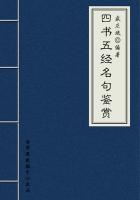A year after Louis XVIII.'s restoration, a visit was made by the inspector-general of prisons. Dantes in his cell heard the noise of preparation, - sounds that at the depth where he lay would have been inaudible to any but the ear of a prisoner, who could hear the splash of the drop of water that every hour fell from the roof of his dungeon. He guessed something uncommon was passing among the living; but he had so long ceased to have any intercourse with the world, that he looked upon himself as dead.
The inspector visited, one after another, the cells and dungeons of several of the prisoners, whose good behavior or stupidity recommended them to the clemency of the government. He inquired how they were fed, and if they had any request to make. The universal response was, that the fare was detestable, and that they wanted to be set free.
The inspector asked if they had anything else to ask for. They shook their heads. What could they desire beyond their liberty? The inspector turned smilingly to the governor.
"I do not know what reason government can assign for these useless visits; when you see one prisoner, you see all, - always the same thing, - ill fed and innocent. Are there any others?"
"Yes; the dangerous and mad prisoners are in the dungeons."
"Let us visit them," said the inspector with an air of fatigue. "We must play the farce to the end. Let us see the dungeons."
"Let us first send for two soldiers," said the governor. "The prisoners sometimes, through mere uneasiness of life, and in order to be sentenced to death, commit acts of useless violence, and you might fall a victim."
"Take all needful precautions," replied the inspector.
Two soldiers were accordingly sent for, and the inspector descended a stairway, so foul, so humid, so dark, as to be loathsome to sight, smell, and respiration.
"Oh," cried the inspector, "who can live here?"
"A most dangerous conspirator, a man we are ordered to keep the most strict watch over, as he is daring and resolute."
"He is alone?"
"Certainly."
"How long his he been there?"
"Nearly a year."
"Was he placed here when he first arrived?"
"No; not until he attempted to kill the turnkey, who took his food to him."
"To kill the turnkey?"
"Yes, the very one who is lighting us. Is it not true, Antoine?" asked the governor.
"True enough; he wanted to kill me!" returned the turnkey.
"He must be mad," said the inspector.
"He is worse than that, - he is a devil!" returned the turnkey.
"Shall I complain of him?" demanded the inspector.
"Oh, no; it is useless. Besides, he is almost mad now, and in another year he will be quite so."
"So much the better for him, - he will suffer less," said the inspector. He was, as this remark shows, a man full of philanthropy, and in every way fit for his office.
"You are right, sir," replied the governor; "and this remark proves that you have deeply considered the subject. Now we have in a dungeon about twenty feet distant, and to which you descend by another stair, an abbe, formerly leader of a party in Italy, who has been here since 1811, and in 1813 he went mad, and the change is astonishing. He used to weep, he now laughs; he grew thin, he now grows fat. You had better see him, for his madness is amusing."
"I will see them both," returned the inspector; "I must conscientiously perform my duty." This was the inspector's first visit; he wished to display his authority.
"Let us visit this one first," added he.
"By all means," replied the governor, and he signed to the turnkey to open the door. At the sound of the key turning in the lock, and the creaking of the hinges, Dantes, who was crouched in a corner of the dungeon, whence he could see the ray of light that came through a narrow iron grating above, raised his head. Seeing a stranger, escorted by two turnkeys holding torches and accompanied by two soldiers, and to whom the governor spoke bareheaded, Dantes, who guessed the truth, and that the moment to address himself to the superior authorities was come, sprang forward with clasped hands.
The soldiers interposed their bayonets, for they thought that he was about to attack the inspector, and the latter recoiled two or three steps. Dantes saw that he was looked upon as dangerous. Then, infusing all the humility he possessed into his eyes and voice, he addressed the inspector, and sought to inspire him with pity.
The inspector listened attentively; then, turning to the governor, observed, "He will become religious - he is already more gentle; he is afraid, and retreated before the bayonets - madmen are not afraid of anything; I made some curious observations on this at Charenton." Then, turning to the prisoner, "What is it you want?" said he.
"I want to know what crime I have committed - to be tried; and if I am guilty, to be shot; if innocent, to be set at liberty."
"Are you well fed?" said the inspector.
"I believe so; I don't know; it's of no consequence. What matters really, not only to me, but to officers of justice and the king, is that an innocent man should languish in prison, the victim of an infamous denunciation, to die here cursing his executioners."
"You are very humble to-day," remarked the governor; "you are not so always; the other day, for instance, when you tried to kill the turnkey."
"It is true, sir, and I beg his pardon, for he his always been very good to me, but I was mad."
"And you are not so any longer?"
"No; captivity has subdued me - I have been here so long."
"So long? - when were you arrested, then?" asked the inspector.
"The 28th of February, 1815, at half-past two in the afternoon."
"To-day is the 30th of July, 1816, - why it is but seventeen months."
"Only seventeen months," replied Dantes. "Oh, you do not know what is seventeen months in prison! - seventeen ages rather, especially to a man who, like me, had arrived at the summit of his ambition - to a man, who, like me, was on the point of marrying a woman he adored, who saw an honorable career opened before him, and who loses all in an instant - who sees his prospects destroyed, and is ignorant of the fate of his affianced wife, and whether his aged father be still living! Seventeen months captivity to a sailor accustomed to the boundless ocean, is a worse punishment than human crime ever merited. Have pity on me, then, and ask for me, not intelligence, but a trial; not pardon, but a verdict - a trial, sir, I ask only for a trial; that, surely, cannot be denied to one who is accused!"
"We shall see," said the inspector; then, turning to the governor, "On my word, the poor devil touches me. You must show me the proofs against him."
"Certainly; but you will find terrible charges."
"Monsieur," continued Dantes, "I know it is not in your power to release me; but you can plead for me - you can have me tried - and that is all I ask. Let me know my crime, and the reason why I was condemned. Uncertainty is worse than all."
"Go on with the lights," said the inspector.
"Monsieur," cried Dantes, "I can tell by your voice you are touched with pity; tell me at least to hope."
"I cannot tell you that," replied the inspector; "I can only promise to examine into your case."
"Oh, I am free - then I am saved!"
"Who arrested you?"
"M. Villefort. See him, and hear what he says."
"M. Villefort is no longer at Marseilles; he is now at Toulouse."
"I am no longer surprised at my detention," murmured Dantes, "since my only protector is removed."
"Had M. de Villefort any cause of personal dislike to you?"
"None; on the contrary, he was very kind to me."
"I can, then, rely on the notes he has left concerning you?"
"Entirely."
"That is well; wait patiently, then." Dantes fell on his knees, and prayed earnestly. The door closed; but this time a fresh inmate was left with Dantes - hope.
"Will you see the register at once," asked the governor, "or proceed to the other cell?"
"Let us visit them all," said the inspector. "If I once went up those stairs. I should never have the courage to come down again."
"Ah, this one is not like the other, and his madness is less affecting than this one's display of reason."
"What is his folly?"
"He fancies he possesses an immense treasure. The first year he offered government a million of francs for his release; the second, two; the third, three; and so on progressively. He is now in his fifth year of captivity; he will ask to speak to you in private, and offer you five millions."
"How curious! - what is his name?"
"The Abbe Faria."
"No. 27," said the inspector.
"It is here; unlock the door, Antoine." The turnkey obeyed, and the inspector gazed curiously into the chamber of the "mad abbe."
In the centre of the cell, in a circle traced with a fragment of plaster detached from the wall, sat a man whose tattered garments scarcely covered him. He was drawing in this circle geometrical lines, and seemed as much absorbed in his problem as Archimedes was when the soldier of Marcellus slew him.
He did not move at the sound of the door, and continued his calculations until the flash of the torches lighted up with an unwonted glare the sombre walls of his cell; then, raising his head, he perceived with astonishment the number of persons present. He hastily seized the coverlet of his bed, and wrapped it round him.
"What is it you want?" said the inspector.
"I, monsieur," replied the abbe with an air of surprise - "I want nothing."
"You do not understand," continued the inspector; "I am sent here by government to visit the prison, and hear the requests of the prisoners."
"Oh, that is different," cried the abbe; "and we shall understand each other, I hope."
"There, now," whispered the governor, "it is just as I told you."
"Monsieur," continued the prisoner, "I am the Abbe Faria, born at Rome. I was for twenty years Cardinal Spada's secretary; I was arrested, why, I know not, toward the beginning of the year 1811; since then I have demanded my liberty from the Italian and French government."
"Why from the French government?"
"Because I was arrested at Piombino, and I presume that, like Milan and Florence, Piombino has become the capital of some French department."
"Ah," said the inspector, "you have not the latest news from Italy?"
"My information dates from the day on which I was arrested," returned the Abbe Faria; "and as the emperor had created the kingdom of Rome for his infant son, I presume that he has realized the dream of Machiavelli and Caesar Borgia, which was to make Italy a united kingdom."
"Monsieur," returned the inspector, "providence has changed this gigantic plan you advocate so warmly."
"It is the only means of rendering Italy strong, happy, and independent."
"Very possibly; only I am not come to discuss politics, but to inquire if you have anything to ask or to complain of."
"The food is the same as in other prisons, - that is, very bad; the lodging is very unhealthful, but, on the whole, passable for a dungeon; but it is not that which I wish to speak of, but a secret I have to reveal of the greatest importance."
"We are coming to the point," whispered the governor.
"It is for that reason I am delighted to see you," continued the abbe, "although you have disturbed me in a most important calculation, which, if it succeeded, would possibly change Newton's system. Could you allow me a few words in private."
"What did I tell you?" said the governor.
"You knew him," returned the inspector with a smile.
"What you ask is impossible, monsieur," continued he, addressing Faria.
"But," said the abbe, "I would speak to you of a large sum, amounting to five millions."
"The very sum you named," whispered the inspector in his turn.
"However," continued Faria, seeing that the inspector was about to depart, "it is not absolutely necessary for us to be alone; the governor can be present."
"Unfortunately," said the governor, "I know beforehand what you are about to say; it concerns your treasures, does it not?" Faria fixed his eyes on him with an expression that would have convinced any one else of his sanity.
"Of course," said he; "of what else should I speak?"
"Mr. Inspector," continued the governor, "I can tell you the story as well as he, for it has been dinned in my ears for the last four or five years."
"That proves," returned the abbe, "that you are like those of Holy Writ, who having ears hear not, and having eyes see not."
"My dear sir, the government is rich and does not want your treasures," replied the inspector; "keep them until you are liberated." The abbe's eyes glistened; he seized the inspector's hand.
"But what if I am not liberated," cried he, "and am detained here until my death? this treasure will be lost. Had not government better profit by it? I will offer six millions, and I will content myself with the rest, if they will only give me my liberty."
"On my word," said the inspector in a low tone, "had I not been told beforehand that this man was mad, I should believe what he says."
"I am not mad," replied Faria, with that acuteness of hearing peculiar to prisoners. "The treasure I speak of really exists, and I offer to sign an agreement with you, in which I promise to lead you to the spot where you shall dig; and if I deceive you, bring me here again, - I ask no more."
The governor laughed. "Is the spot far from here?"
"A hundred leagues."
"It is not ill-planned," said the governor. "If all the prisoners took it into their heads to travel a hundred leagues, and their guardians consented to accompany them, they would have a capital chance of escaping."
"The scheme is well known," said the inspector; "and the abbe's plan has not even the merit of originality."
Then turning to Faria - "I inquired if you are well fed?" said he.
"Swear to me," replied Faria, "to free me if what I tell you prove true, and I will stay here while you go to the spot."
"Are you well fed?" repeated the inspector.
"Monsieur, you run no risk, for, as I told you, I will stay here; so there is no chance of my escaping."
"You do not reply to my question," replied the inspector impatiently.
"Nor you to mine," cried the abbe. "You will not accept my gold; I will keep it for myself. You refuse me my liberty; God will give it me." And the abbe, casting away his coverlet, resumed his place, and continued his calculations.
"What is he doing there?" said the inspector.
"Counting his treasures," replied the governor.
Faria replied to this sarcasm with a glance of profound contempt. They went out. The turnkey closed the door behind them.
"He was wealthy once, perhaps?" said the inspector.
"Or dreamed he was, and awoke mad."
"After all," said the inspector, "if he had been rich, he would not have been here." So the matter ended for the Abbe Faria. He remained in his cell, and this visit only increased the belief in his insanity.
Caligula or Nero, those treasure-seekers, those desirers of the impossible, would have accorded to the poor wretch, in exchange for his wealth, the liberty he so earnestly prayed for. But the kings of modern times, restrained by the limits of mere probability, have neither courage nor desire. They fear the ear that hears their orders, and the eye that scrutinizes their actions. Formerly they believed themselves sprung from Jupiter, and shielded by their birth; but nowadays they are not inviolable.
It has always been against the policy of despotic governments to suffer the victims of their persecutions to reappear. As the Inquisition rarely allowed its victims to be seen with their limbs distorted and their flesh lacerated by torture, so madness is always concealed in its cell, from whence, should it depart, it is conveyed to some gloomy hospital, where the doctor has no thought for man or mind in the mutilated being the jailer delivers to him. The very madness of the Abbe Faria, gone mad in prison, condemned him to perpetual captivity.
The inspector kept his word with Dantes; he examined the register, and found the following note concerning him: -
Edmond Dantes:
Violent Bonapartist; took an active part in the return from Elba.
The greatest watchfulness and care to be exercised.
This note was in a different hand from the rest, which showed that it had been added since his confinement. The inspector could not contend against this accusation; he simply wrote, - "Nothing to be done."
This visit had infused new vigor into Dantes; he had, till then, forgotten the date; but now, with a fragment of plaster, he wrote the date, 30th July, 1816, and made a mark every day, in order not to lose his reckoning again. Days and weeks passed away, then months - Dantes still waited; he at first expected to be freed in a fortnight. This fortnight expired, he decided that the inspector would do nothing until his return to Paris, and that he would not reach there until his circuit was finished, he therefore fixed three months; three months passed away, then six more. Finally ten months and a half had gone by and no favorable change had taken place, and Dantes began to fancy the inspector's visit but a dream, an illusion of the brain.
At the expiration of a year the governor was transferred; he had obtained charge of the fortress at Ham. He took with him several of his subordinates, and amongst them Dantes' jailer. A new governor arrived; it would have been too tedious to acquire the names of the prisoners; he learned their numbers instead. This horrible place contained fifty cells; their inhabitants were designated by the numbers of their cell, and the unhappy young man was no longer called Edmond Dantes - he was now number 34.














